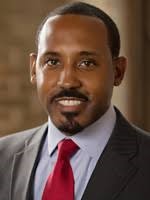
House targets fatherhood ‘crisis’

NNPA file photo

By Ryan Dailey
News Service of Florida
As the House speaker decries a “fatherhood crisis” in the state, the House passed a wide-ranging measure that seeks to bolster fathers’ parenting skills.
The House unanimously passed the measure (HB 7065), which deals largely with the Department of Children and Families and proposes changes that would prioritize resources for fathers and help for current and former foster children.
A main part of the bill would direct the department to contract for the creation of the “Responsible Fatherhood Initiative.” The department would contract with an entity to launch a website and distribute other materials that would inform fathers on effective parenting.
The fatherhood initiative also would include a print, television and social media campaign that “may include appearances by and involvement from public figures and influencers.”
House Speaker Chris Sprowls, R-Palm Harbor, made the measure a top priority for the 2022 session. Sprowls on Wednesday said changes proposed by the bill could affect future generations and pay dividends for the state.
“From poverty to crime to incarceration, just about every negative outcome we see that faces boys here in Florida and across the country, can be linked back to an absent father in the home,” Sprowls said during a news conference at the Capitol.
The department also would be required to award grants to non-profit community organizations to address the needs of fathers.
For instance, the bill would require that grants be geared toward helping fathers in “finding employment, managing child support obligations, transitioning from a period of incarceration, accessing health care, understanding child development and enhancing parenting skills.”
Bill sponsor Thad Altman, R-Indialantic, echoed Sprowls, saying the “breakdown of the family unit” is the most pressing issue facing society.
“Every father who leaves their family changes their family tree forever. Their child is more likely to go to jail, to receive government subsidies and to pass a generation of poverty on to their children,” Altman said.
Grants to assist “at-risk” male students in middle school and high school by connecting them with mentorship programs also would be created under the proposal.
The House’s proposed budget for next fiscal year would provide more than $60 million for grant programs and initiatives in the measure, according to a House staff analysis.
Rep. Ramon Alexander, a Tallahassee Democrat who is in line to become the party’s House leader after the November elections, backed the measure.
“This is a game-changer. This is a monumental piece of legislation that will send shockwaves throughout our state for generations to come. It will give hope to the hopeless, it will inspire those and put resources on the ground for people who are doing real work every day,” Alexander said.
The bill also proposes changes that would help people who are transitioning out of foster care, including directing the Department of Children and Families to help create a “financial plan” for the young adults.
A stipend available to young adults who have previously been in foster care and are attending postsecondary schools would be increased under the bill, from $1,256 to $1,720 each month.
Senate President Wilton Simpson, R-Trilby, also endorsed the House bill.
Before the bill passed, House members waded into a debate about what Democratic lawmakers slammed as racist and hateful language in a part of state law related to the foster care system.
The law defines a “special needs child” within the system as a child who “is not likely to be adopted” because of several factors, such as being age 8 years or older, developmentally disabled or a child who is of “Black or racially mixed parentage.”
Republican and Democratic lawmakers condemned the language, and Sprowls said efforts to remove the language from law are underway.
“We have identified a vehicle to make that statutory change,” Sprowls said, eliciting applause from representatives.







